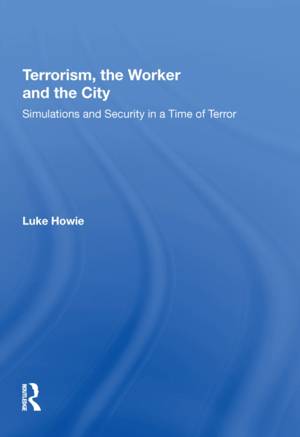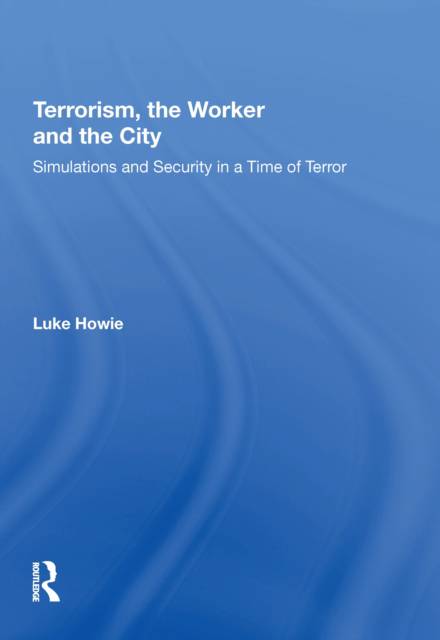
- Retrait gratuit dans votre magasin Club
- 7.000.000 titres dans notre catalogue
- Payer en toute sécurité
- Toujours un magasin près de chez vous
- Retrait gratuit dans votre magasin Club
- 7.000.0000 titres dans notre catalogue
- Payer en toute sécurité
- Toujours un magasin près de chez vous
Terrorism, the Worker and the City
Simulations and Security in a Time of Terror
Luke Howie
Livre relié | Anglais
195,95 €
+ 391 points
Description
Soon after watching the twin towers falling in New York, some of those with business responsibilities were already asking themselves whether people would be willing to work in tall buildings ever again. Is work too risky? How can people be expected to attend work in what might now be seen as precarious and vulnerable workplaces and cities? Although, thankfully, large scale terrorist attacks are infrequent, the world's cities, and the businesses to which they are home, have been put on notice that it can come to any place at any time. In Terrorism, the Worker and the City, Luke Howie considers what steps managers and employees can and should take to protect their businesses from such an amorphous and indefinable threat. Deftly combining theoretical insight with empirical research, he reveals how, despite an appearance of 'business as usual', fear; anxiety; and suspicion permeate workplaces, even in cities that may not be at the top of any terrorist group's target list. Using the Australian city of Melbourne, a cosmopolitan city and major business centre with nearly four million people, as a metaphor for other such cities around the world, Dr Howie's research has uncovered that even where they don't perceive a high level threat, business managers who might face having to account for themselves to some post event Inquiry have taken action in consequence of the situation. Often, that action amounts to the introduction of what can be described as 'Simulated Security'. This cannot ever provide certain protection from terrorist attack, but it may be the best we can reasonably do. There is also evidence that it can be effective in terms of providing the reassurance to counter the terrorist objective of disrupting normal life through fear. With its rigorous research compared with other more speculative works on this subject, Terrorism, the Worker and the City will appeal to city and business leaders and managers, and security professionals, as well as those in governmenta
Spécifications
Parties prenantes
- Auteur(s) :
- Editeur:
Contenu
- Nombre de pages :
- 206
- Langue:
- Anglais
Caractéristiques
- EAN:
- 9780815397328
- Date de parution :
- 20-11-17
- Format:
- Livre relié
- Format numérique:
- Genaaid
- Dimensions :
- 171 mm x 245 mm
- Poids :
- 381 g

Les avis
Nous publions uniquement les avis qui respectent les conditions requises. Consultez nos conditions pour les avis.






